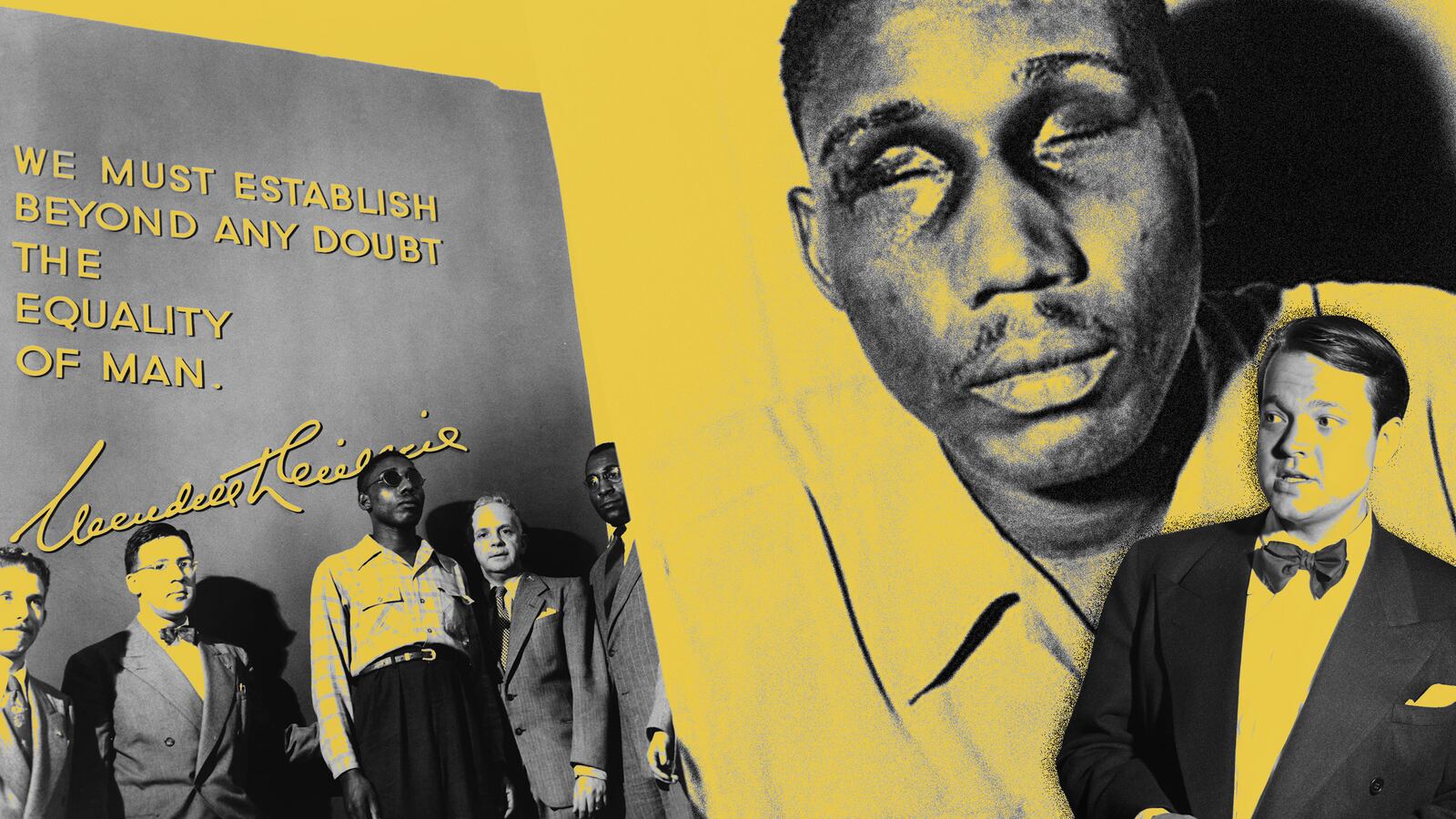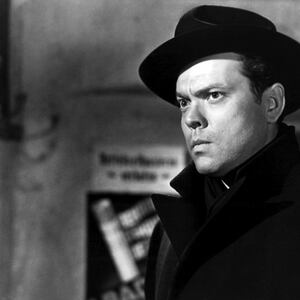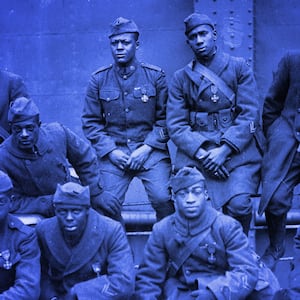Americans have begun to talk once again about Atticus Finch, the heroic small town Alabama lawyer in To Kill a Mockingbird. The Aaron Sorkin play based on the classic 1960 novel by Harper Lee is the biggest hit on Broadway. It stars Jeff Daniels as the attorney moved by his conscience, human decency, and faith in the rule of law to defend a black man wrongly accused of rape in the 1930s.
Good. We need reminding in today's America that lynch law—which we like to think is a thing of the past—always had another side: the kind of taken-for-granted easy-to-live-with racism white people were used to in the South of “Mockingbird.” And we should be aware as well that those attitudes never were limited to Southerners. A lot of Donald Trump’s followers clearly wish they could return to a world where white men were men, and all others were something less.
But for all the virtues of Harper Lee’s novel or its new Broadway incarnation, they are fiction. And history can teach us more if the stories are well told and the facts are clear.
A book to be published later his month, Unexampled Courage by Richard Gergel, does just that.
It’s set in Charleston, South Carolina, which used to be a city so deeply steeped in racism it started the American Civil War in 1861 to defend slavery. After that cause was lost, for generation after generation Charleston settled into what white folks came to accept as matter-of-fact Jim Crow repression.
Gergel’s book tells the story of huge miscarriages of justice in the years following World War II, and one of the central characters, a federal judge born and bred in Charleston, was not just a real-live Atticus Finch moved by conscience, decency, and faith in the law, he was a jurist who changed American history forever.
I first heard the story from the author on a visit to Charleston in early 2016, then was sent the galleys last summer for a comment. It was an emotional journey. As I read the book there were tears of rage, but also of admiration for the truly extraordinary courage of a brutalized and blinded black soldier; the bravery of a pastor and a gas station attendant and a maid at a motel who risked everything to fight the Jim Crow system; the judge who decided he could change things; and an American president who did what he believed to be morally right at a time when the United States—having defeated the Nazis and squared off against the Soviet Union—hoped its moral leadership would resonate around the world.
Most of all, Unexampled Courage reminds us just how much we depend on the bravery of the few to right the wrongs of the many.
On the night of Feb. 12, 1946, Sgt. Isaac Woodard boarded a Greyhound bus in Augusta, Georgia, headed home to Winnsboro, S.C., where he came from a family of sharecroppers. He had just spent three years in a black unit of the segregated U.S. Army and served 15 months in the Pacific, where he earned a battle star unloading ships under fire during the New Guinea campaign. Woodard (often misspelled Woodward) was discharged earlier in the day that Tuesday, but was still in uniform.
In both World War I and World War II black Americans had hoped that in the military they would earn not only respect, but the equal treatment under the law guaranteed by the Constitution. That had not happened. Segregationists still clung to the idea—the law as interpreted by the Supreme Court—that facilities for Negroes, even entire military units, should be “separate but equal.” In practice, that meant keeping blacks “in their place,” which was not equal at all.
Worse still, the black soldiers returning from active duty were viewed by the the white establishment as insolent, even dangerous. “Uppity,” was the active word.
So when the bus driver cursed at Woodard for wanting to get off to go to the bathroom at one of the stops, and Woodard cursed back, things started to get ugly. Shortly afterward at another stop in rural South Carolina in the middle of the night, the driver went looking for a local policeman, who took Woodard off the bus and hit him over the head with his blackjack, a small flexible club. Woodard grabbed it, but a deputy drew his gun and Woodard dropped it. Then the sheriff really went after this uppity black man in uniform, not only beating him on the head, but gouging his eyes with the butt of the club.
Woodard was blinded for life.
Word of what had happened was slow to get out, but eventually came to the attention of the NAACP, the National Association for the Advancement of Colored People, and its legendary leader, Walter White. For years he and such NAACP lawyers as Thurgood Marshall had been waging a determined fight against lynching and the myriad other forms of violence and discrimination directed at blacks.
White brought the Woodard case to the attention of President Harry Truman, who was so appalled by it that, after some bureaucratic and political maneuvering, he made two landmark decisions. First, Truman set the wheels in motion to integrate America’s armed forces once and for all. Secondly, he pushed the civil rights division of the Justice Department, which had been more or less moribund under President Franklin Roosevelt, to investigate and prosecute the redneck sheriff. But at first nobody had been sure who that was. Woodard had not known exactly where he was when he was blinded.
White was in contact with Orson Welles, the Broadway and Hollywood prodigy made famous by his “War of the Worlds” radio broadcast and his movie, Citizen Kane. Welles had just started a new radio show commenting on the news, and made justice for Woodard his own cause.
You can hear Welles reading from Woodard’s affidavit here in the first three minutes of his July 28, 1946 broadcast.
But even five months after the incident, the name of the sheriff was not known. Woodard had thought he was in Aiken, S.C., but that was not the case, and nobody was coming forward to say where in fact he had been attacked.
The NAACP—and Welles—sent investigators to South Carolina to find the truth, all the while calling on a nationwide audience to help.
The campaign worked. “All clues led to Mr. L. L. Shull, chief of police in Batesburg, South Carolina,” Welles proclaimed when he had the information in hand in August 1946. “Now we have him. We won’t let him go.”
Under pressure from Truman, the Justice Department did indeed prosecute Shull in federal court in Charleston, South Carolina, and the evidence was damning, but the jury was all white and acquitted him.
The federal judge with the very Old Charleston name of J. Waties Waring, was furious at the miscarriage of justice but could do nothing to change the verdict.
Instead, he set out to reexamine his own views of race and to change, if he could, the legal landscape of America. Pushing 70 years old, he became an activist judge in the strongest possible terms, an Atticus Finch on the bench, if you will. He read deeply into Gunnar Myrdal’s landmark 1944 study, An American Dilemma: The Negro Problem and Modern Democracy, and the long, often shameful history of legal precedents.
Comfortable Charleston Society ostracized Waring. Eventually, inevitably, a cross was burned in his yard, and death threats multiplied. He found new friends in Walter White and others fighting for civil rights, but none were safe in Waring’s home town.
There was, however, some hope for the future.
By the late 1940s the U.S. Supreme Court appeared to be edging toward a reconsideration of the “separate but equal” ruling enshrined as law in the 1896 case of Plessy v. Ferguson. But not even the NAACP was attacking it directly. The civil rights strategy was to whittle Plessy away over time by proving case by case that separate was not, in each of those cases, equal.
Waring was not happy with that approach. He watched for a case where it would be possible to take a clearer, more absolute stand, and finally found it in a suit organized by an African Methodist Episcopal minister, Rev. Joseph A. DeLaine, on behalf of black parents whose children in some cases had to walk nine miles to school. They wanted equal bus transportation.
There were 21 plaintiffs, led by Harry Briggs, a Navy veteran who worked at a filling station, and his wife Eliza Briggs, a maid at a local motel. Legal history remembers the case as Briggs v. Elliott.
The NAACP’s Thurgood Marshall wanted to continue his organization’s incremental approach, but Waring called him into chambers and told him he wanted something much tougher: “I don’t want to hear another separate but equal case. Bring me a frontal attack on segregation.”
The plaintiffs knew perfectly well they would be risking their jobs, if they were lucky, and their lives if they were not. Asked if they wanted to continue, they said yes. Hell yes. Marshall told one of his colleagues bluntly, correctly, “They’re not scared any more.”
Tried before a panel of three federal judges, one of them an unrepentant segregationist, one a “conservative” who might claim an open mind, and Waring, the judgement came down against the plaintiffs. But Waring knew, and everyone knew, that was likely. Waring was betting on the arguments in his dissenting opinion.
In it he praised the “unexampled courage” of the plaintiffs, and concluded it was “clearly apparent” that “segregation in education can never produce equality and it is an evil that must be eradicated. … Segregation is per se inequality.”
As Gergel writes, in 1954 “Waring’s per se analysis would appear once again and be the defining holding of the most important case in American history, Brown v. Board of Education,” the decision that ended once and for all the argument for legal segregation in the United States.
Perhaps I forgot to mention this. Charleston has worked hard to overcome its long history of racism. But in the summer of 2015, a young white supremacist from out of town murdered nine African-Americans in the Emanuel African Methodist Episcopal Church in the heart of the city.
The killer, Dylann Roof, was tried in the same federal courtroom where Judge Waring once presided. Indeed, it is now in the J. Waties Waring Judicial Center. The judge in the Emanuel Church case was Richard Gergel, the author of Unexampled Courage.








